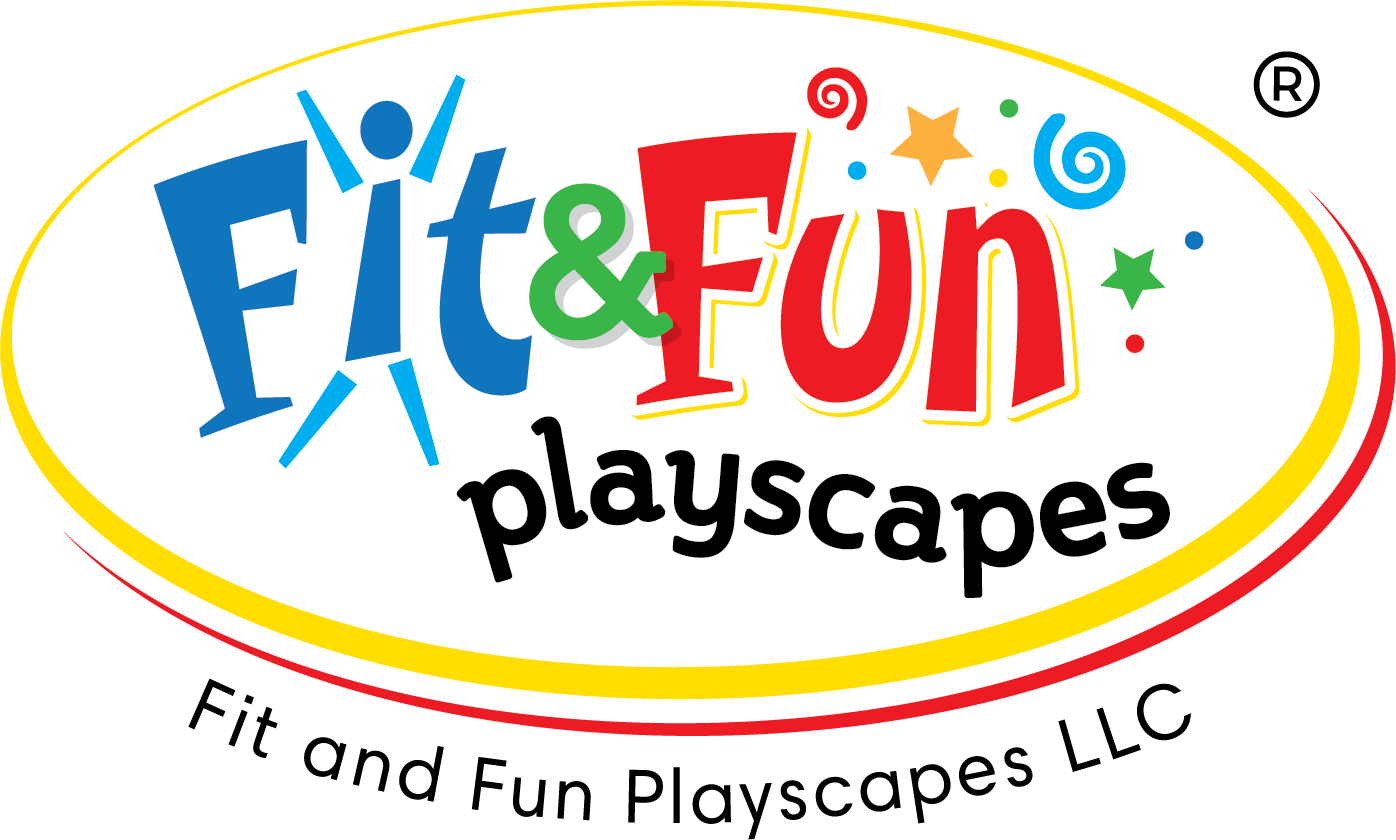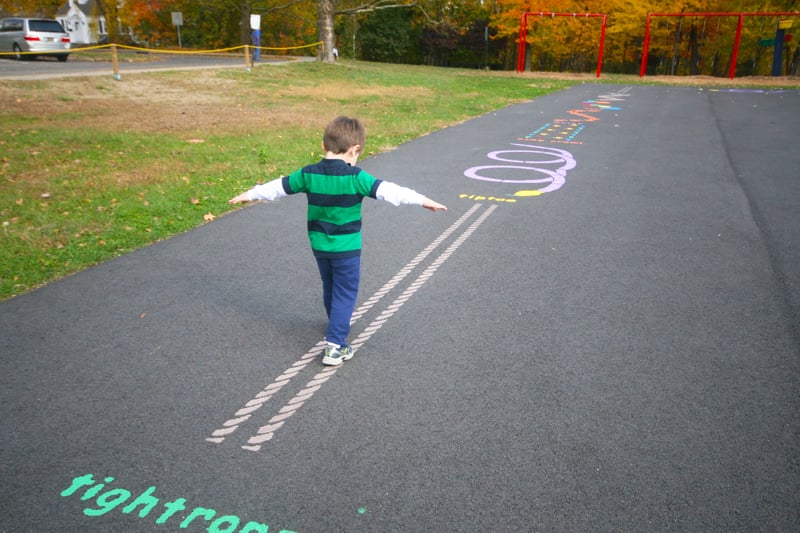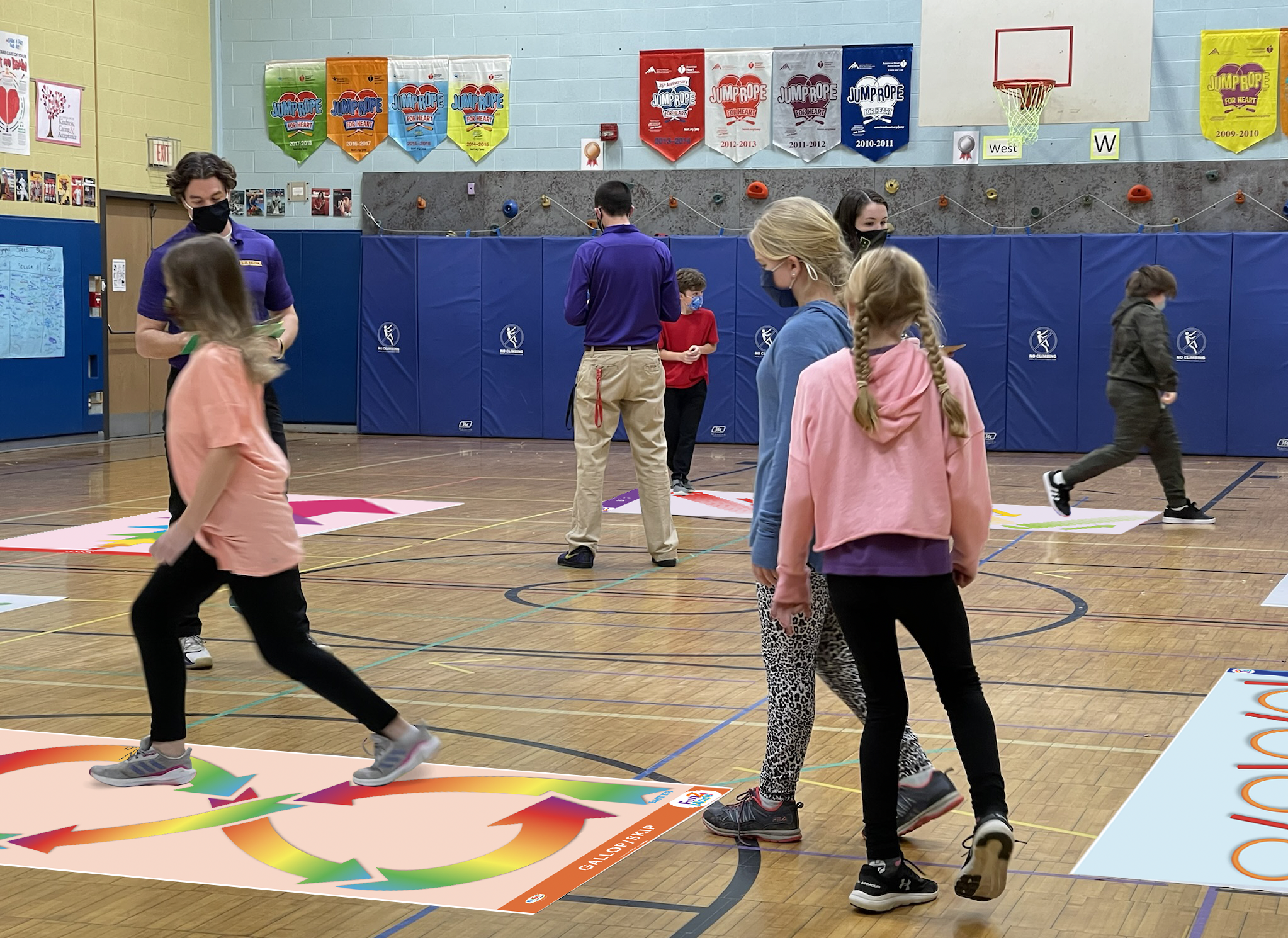Connecting Sensory Health and Physical literacy! Unpacking Important Goals of Child Development
– Written By Dr. Timothy Davis –
I recently attended a national conference where the term “Sensory Health” was used within the
scope of a larger discussion about important factors that impact childhood development. As I
listened to the session, I began thinking about what I could share in my next blog that would
help our Fit and Fun Playscape audience make a stronger connection to the importance of
promoting Sensory Health by using sensory based activities and staying physically active.
Therefore, I outlined a bit of the presentation on Sensory Health and made strong connections to how giving our kiddos opportunities to be physically active supports child development. I hope you enjoy the blog and learn something new! Please feel free to reach out and connect with me or the staff at Fit and Fun Playscapes to learn additional ways you can help your kiddos learn and grow! We will start by reviewing the key concepts presented in the session that support a
holistic perspective of sensory development in children.
What is the meaning of Sensory Health?
The ability to manage and integrate sensory information leads to self-regulation. Self-regulation allows us to feel safe, confident, and in control. When we integrate our senses and have the feeling of homeostasis or “balance in our sensory system” we feel confident in our ability to be social, play and learn. This is the general idea of achieving overall sensory health. One could also say that achieving sensory health is the feeling or sensation of being confident in our shoes wherever we stand and wherever we play!Ultimately, sensory health gives us the feeling of being well adjusted to any environment we find ourselves and when there is a change in our environment. Sensory health, therefore, is the bridge that connects the concepts of sensory processing and integration with self-regulation and well-being.
What is the meaning of Sensory Integration?
Although we have explored this in previous blogs engaging in daily physical activity helps to develop sensory integration, which is the brain's ability to organize and interpret sensory information from the environment and the body. Activities like playing catch, balancing on a beam, holding a yoga pose, or jumping over a log pattern require coordination between sensory input and motor responses.
Overall, physical literacy is essential for holistic child development, contributing to physical,
cognitive, social, and emotional well-being. But physical literacy also refers to the ability,
confidence, and motivation to move effectively and enjoyably throughout life. It involves the
development of fundamental movement skills, such as running, jumping, leaping, skipping,
hopping, kicking, throwing, and catching, as well as the knowledge, understanding, and
appreciation of general physical activity and its benefits.
A physically literate individual is not only competent in a wide range of physical activities but also understands the importance of leading an active lifestyle for overall health and well-being. Physical literacy goes beyond simply knowing how to perform specific movements; it encompasses the ability to adapt and apply these skills in various contexts and environments. In essence, physical literacy equips individuals with the skills, knowledge, and attitudes needed to participate confidently and competently in physical activities, both for recreation and for maintaining a healthy lifestyle throughout their lives.
Yet so many children struggle with the basic ability to enjoy movement simply because they are missing or have an inability to integrate and manage sensory input. In reality, they are lacking “sensory health” or ones ability to integrate and use information from their environment to help them self-regulate during any activity.
Physical literacy and sensory health are closely interconnected aspects of overall well-being.
Sensory health refers to the ability to effectively use and process information received through
the senses, including sight, hearing, touch, taste, and smell. Physical literacy contributes
significantly to sensory health and vice versa in several ways:
Healthy Lifestyle: Developing physical literacy fosters a love for physical activity, laying the foundation for a healthy lifestyle. Children who are physically literate are more likely to engage
in regular exercise, reducing their risk of obesity and related health issues.
Motor Skill Development: Physical literacy helps children develop fundamental motor skills like running, jumping, throwing, and catching. These skills are essential for participation in sports and physical activities throughout life.
Cognitive Development: Physical activity has been linked to improved cognitive function and academic performance. By engaging in physical play and activities, children enhance their brain function, memory, and attention span.
Social Skills: Participating in sports and physical activities provides opportunities for children to interact with peers, teaching them important social skills like teamwork, communication, and cooperation.
Emotional Well-being: Physical activity has positive effects on mental health by reducing stress, anxiety, and depression. It also promotes feelings of accomplishment and self-esteem, which are vital for overall well-being.
Long-Term Health: Developing physical literacy at a young age sets the stage for a lifetime of
physical fitness and health. Children who are physically active are more likely to continue
exercising into adulthood, reducing their risk of chronic diseases such as heart disease,
diabetes, and osteoporosis.
Therefore, physical literacy is essential for holistic child development, contributing to physical, cognitive, social, and emotional well-being. Physical literacy and sensory health are closely interconnected aspects of our overall well-being. Sensory health refers to the ability to effectively use and process information received through the senses, including sight, hearing, touch, taste, and smell. Physical literacy contributes significantly to sensory health and vice versa in several ways:
Sensory Regulation/Sensory Integration: Physical activity plays a role in sensory regulation by
helping to regulate arousal levels and sensory processing. Exercise can have a calming effect
on the nervous system, reducing stress and promoting emotional regulation. For individuals with sensory processing difficulties, engaging in appropriate physical activities can provide sensory input that helps them stay focused and organized.
Proprioception: Physical literacy enhances proprioception, the body's awareness of its position and movement in space, as well as kinesthetic awareness, which is the ability to sense the position and movement of body parts relative to each other. These sensory skills are crucial for performing tasks with precision and efficiency.
Multisensory Engagement: Many physical activities involve multisensory experiences,
stimulating multiple senses simultaneously. For example, playing a musical instrument requires
coordination between auditory feedback and motor movements, while swimming engages
tactile, proprioceptive, and vestibular senses.
Environmental Exploration: Physical literacy encourages children to explore and interact with
their environment, providing opportunities for sensory stimulation and learning. Outdoor
activities, in particular, offer a rich sensory experience, allowing children to engage with nature
through sight, sound, touch, and smell.
Overall, physical literacy and sensory health are interconnected components of holistic child
development, with each influencing and supporting the other. By promoting active engagement
in a variety of physical activities, children can enhance their sensory health and improve overall
well-being.







Leave a comment